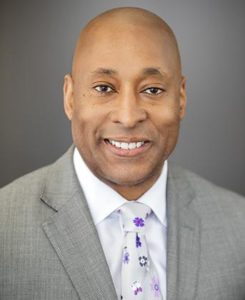September is National Suicide Prevention Month. Mental health advocates, prevention organizations, survivors, allies and community members are united in promoting suicide prevention awareness. This month, the National Alliance on Mental Illness (NAMI) is highlighting its “Together for Mental Health” campaign to advocate for enhanced mental health care, including promoting the new 988 Suicide and Crisis Lifeline that offers support to those facing mental health, substance use and suicide crises. More than ever, our caregivers and communities are suffering — and they need help before it’s too late.
Our valued health care workers have worked relentlessly over the past two-plus years, enduring surges of severely ill patients, witnessing countless deaths and coping with severe staffing shortages. Our caregivers have held the dual responsibility of caring for our communities while holding together their own families — often receiving no reprieve from the daily stressors of the pandemic. More than 70% of health care workers have symptoms of anxiety and depression, 38% have symptoms of post-traumatic stress disorder (PTSD) and 15% have had recent thoughts of suicide or self-harm. There is heartbreak behind every statistic.
Even prior to the pandemic, 15% of physicians who had feelings of depression said that it was likely to contribute to errors they wouldn’t ordinarily make. Similarly, in a 2018 study 44% of nurses reported that their mental health affected their work performance. As these numbers suggest, unaddressed mental health issues extend beyond the workforce — with detrimental implications for performance and quality of care. It’s imperative that we care for those who are there for us in times of need.
Health care workers often place the well-being of others before their own — being a caregiver is in their DNA, not just their job description. This leaning, paired with a historical stigma around seeking support for mental health, prevents many caregivers from receiving the help they need. Recognizing the heightened need for resources during the pandemic, HASC created a Care for the Caregiver webpage to help hospitals and their employees stay safe, healthy and connected. I encourage you to share these resources along with those provided by the National Alliance on Mental Illness, and I commend our hospital members for prioritizing the mental health of their caregivers.
As we celebrate Labor Day, I want to wish you and your teams a wonderful weekend and convey gratitude for all you do to enrich our communities and keep us healthy and safe. Thank you for your continued outstanding work.
Take care and stay safe.
George G.
